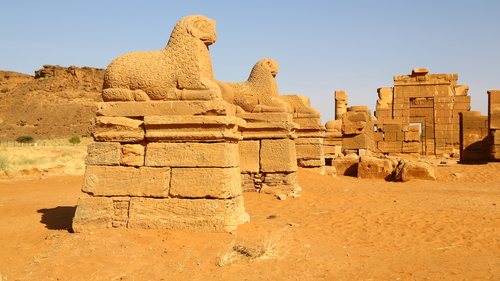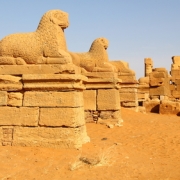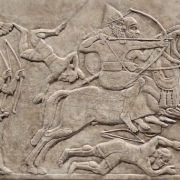They Feared the Lord, Yet…
So they feared the LORD, and from every class they appointed for themselves priests of the high places, who sacrificed for them in the shrines of the high places. They feared the LORD, yet served their own gods — according to the rituals of the nations from among whom they were carried away. (2 Kings 17:32-33)
God brought His judgment against the kingdom of Israel – the ten northern tribes – through the army of Assyria. The Assyrians forced them to relocate to other parts of the empire. Then they brought in the conquered from other lands, to re-populate the now empty land of Israel.

But these foreign newcomers to the land of Israel didn’t honor the God of Israel. The LORD, Yahweh, the covenant God of Israel, sent His judgment against these newcomers for their idolatry. So, the Assyrians sent a priest from among the Israelites removed from the land, sending him to teach the newcomers about the LORD. The newcomers did what the priest told them to do – in part. Not completely.
1 Kings 17:29 says that “every nation continued to make gods of its own.” The priest-for-hire brought in by the Assyrians did not tell the new inhabitants of the land that they must only worship the LORD God of Israel. He did not teach it because, coming from Israel, he did not believe it.
1 Kings 17:33 says it well: They feared the LORD, yet served their own gods. This described the pagan peoples that the Assyrians brought in to populate the area of the Northern Kingdom of Israel. They gave a measure of respect to the God of Israel – after all, they did not want to be eaten by lions. Yet they also served their own gods and picked and chose among religious and spiritual beliefs as it pleased them.
– This accurately described the pagan newcomers who re-populated Israel.
– This accurately described the Kingdom of Israel before they were conquered and exiled.
– This accurately describes common religious belief in the modern world – today.
Don’t you know many people like this? They give some respect to God, and maybe even attend church. Others might look at them and think, “that is someone who fears the Lord.” Despite all that, they serve their own gods.
Charles Spurgeon said this in 1876: “Is not worldly piety, or pious worldliness, the current religion of England? They live among godly people, and God chastens them, and they therefore fear him, but not enough to give their hearts to him.” What Spurgeon said of England is true of many more nations.
Is it true of you? F.B. Meyer wrote, “Are you sure this is not a true description of your own position? You pay an outward deference to God by attending his house, and acknowledging his day, whilst you are really prostrating yourself before other shrines.”
We can bow down before many of our own gods. Ask God to examine your heart and life for hidden idolatry.











